Dandruff in children: Causes and treatment
- Dr Owais Rafiq
- August 11, 2024
- 2:14 pm
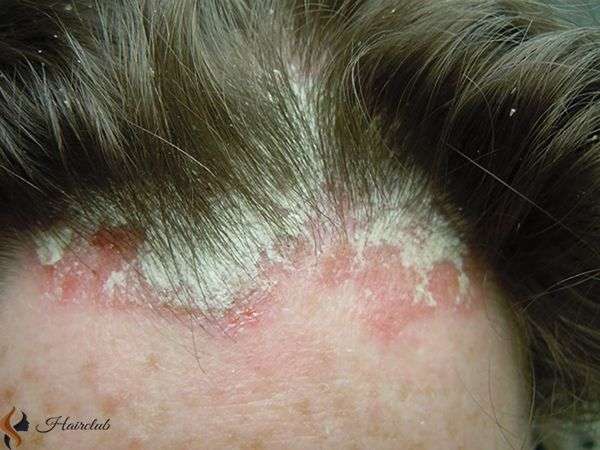
What Is Dandruff?
Dandruff is known to be a frequent and visible scalp disease indicated by tiny white or yellowish flakes falling from the scalp. If you have black hair or dark colored clothes, you will undoubtedly be able to notice the particles with your fingers either in your hair or your shoulders.
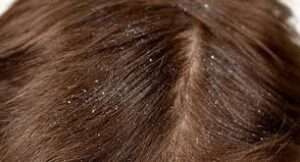
Reasons that can cause dandruff
- Improper Shampooing: While shampooing their children’s hair, parents don’t make a mindful effort of rinsing out the dead skin cells that come from their scalps.
- Too much oil (sebum) in the scalp.
- Malnutrition: Dandruff is the most reported cause of lack of nutrient levels. It is not surprising by the fact that this new generation, as a rule, is inclined to eat fast foods that not always offer the proper nutrition for the body with aliments.
- Sensitivity to Hair Products: Sometimes the hair products that suit you well, become unacceptable for your kid, and cause dandruff. Changing the product can help.
- Malassezia: It is a yeast-like fungus which allows it to grow very quickly whenever it finds sebum in the skin. Sebum is the energy that causes the fungus to grow at the amazing rate.
- Seborrheic Dermatitis: This disease is also called eczema, and it is marked with patches of red, inflamed skin.
- Allergic Reactions: Kids may get a dandruff-like symptom after getting a skin allergy from hair products like shampoo, conditioner, and styling product.
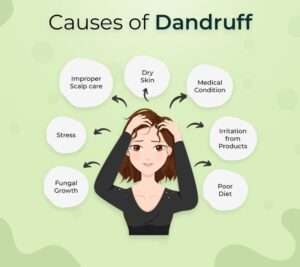
Signs and symptoms
- White flakes of dandruff visible on shoulder and scalp
- Oily flakes visible on scalp
- Itching in scalp.
- Due to excessive dandruff and itching red patched begin to form
- Due to dandruff, oily scalp, fungal or bacterial influence there is an odor coming from scalp.
Is dandruff harmful to child’s scalp?
Usually, dandruff just makes your kid uncomfortable and does not cause much harm in the area of the scalp of the child. However, there are some extremely uncommon cases where the only area that gets inflamed and turns red is in the scalp, such as severe dandruff, eczema, Malassezia or psoriasis. In these cases, consulting a dermatologist is recommended.
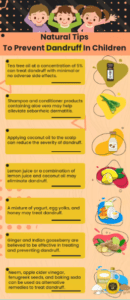
Handling & managing dandruff
- Anti-fungal shampoos: Should be used for fungal infections with doctor’s prescription.
- Staying Hydrated: Hydration can reduce dandruff
- Brushing Before Shampooing: Help loosen the dandruff so by shampooing the dandruff washes away.
- Using Separate Combs and Towels: Help to keep the germs away from children.
- Proper Nutrition: Proper nutrition can help reduce or completely removes dandruff.
- Alternative oiling of scalp: Helps to keep the scalp moist and keeps the dandruff away.
- Avoid harmful hair products: Avoid use of hair products for children as it can cause allergies because of the ingredients.
- Alternative frequent shampooing: It prevents dust accumulation which is the main cause of dandruff.
Does it go away on its own?
It happens when the skin becomes less oily. Thus, if the scalp problem is not serious it can go away on its own. In some cases of dandruff, this only takes place for several days, and it may not even require any particular treatment. Factors that include hormonal imbalance, head scalp sensitivity, and temporary scalp dryness may be the reasons why children sometimes experience self-resolving dandruff. It is essential to take proper care of the scalp. Also, the shampoos should be mild, specially made for children and not too many harsh chemicals or excessive washing is applied as they can complicate the dandruff even more. Through seeking timely medical advice and/or implementing appropriate treatments, the child’s dandruff can be effectively mitigated, resulting in a healthier scalp and significantly lower levels of discomfort associated with dandruff.
When to Consult a doctor?
As your kid’s head begins to show signs of redness and bleeding, then there is need to seek medical help as a result of intense itchiness and dandruff. With proper examination of the scalp the doctor will be able to provide with the treatment that can help you to fight with the dandruff in your children. With just a little of practicing the hygiene and attention dandruff can heal the scalp and dandruff.
Is dandruff contagious?
No, dandruff doesn’t spread through direct contacts. It is not caused by virus or bacteria, which an individual person can give to another one. Dandruff mostly can be caused by dry scalp, oily hair, and a certain species of fungi Malassezia that exists naturally on the scalp.
On the other hand, while the dandruff itself is not infectious, there are other scalp diseases that look similar to dandruff such as seborrheic dermatitis or scalp psoriasis, which are both non-communicable but need different treatment strategies. If you’re not sure the reason for scalp issues, it’s best to go to a health professional for a precise diagnosis and suitable treatment.
Can dandruff cause hair loss?
No, dandruff do not cause hair loss by itself. But hair loss can be caused due to continuous itching that can cause inflammation resulting in hair loss. Stress is also a main factor in hair loss, but dandruff does not have a direct effect on hair loss.
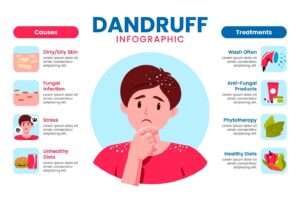
Dr Owais Rafiq
Subscribe to Dr Owais YouTube channel
For parenting advice, child health, symptoms, causes and treatment of illness in children.





